Four Things That Are Not Safe To Can At Home
Four things are not safe to can at home, period. Readers who have followed my posts over the years know I consistently promote having a garden, harvesting our bounty, and eating the items from the garden. I’ve encouraged people to try preserving as many items as possible so they’ll know what the product contains and hopefully eat healthier.
Lately, I have been concerned about articles on Facebook or blogs stating that you can preserve certain foods at home that I knew were unsafe to pressure can or water bath can. Then, I started getting emails and Facebook PMs asking me if this post or that post was accurate.
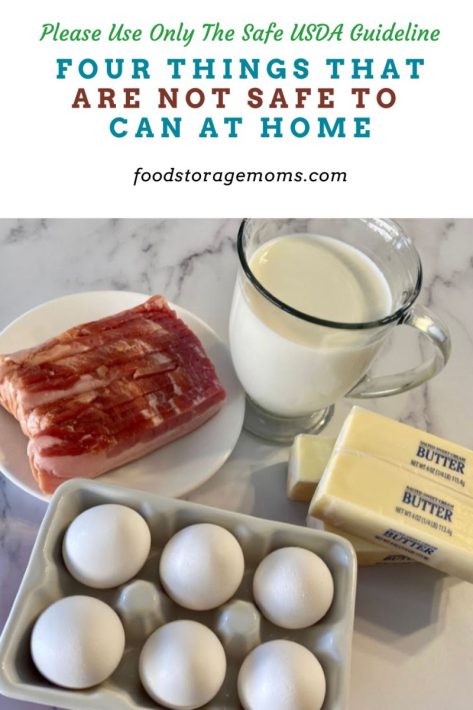
In my gut, I knew some foods weren’t safe to pressure can. So, I went to the experts to confirm my thoughts. I’m not a newbie to canning. I have safely canned my foods per Utah State Extension Service guidelines for over 50 years. Please note that I don’t work for the USDA, and they do not pay me to write about this issue.
I also have my Master Preserver Canning Certificate via the Utah State University Extension Service, which sponsored and taught the USDA training courses. This is an updated article in which I added milk to my list. I’m hearing that a lot of people are canning milk and cream. Because of their fat content, these are unsafe to pressure can at home.
I believe more and more people are water-bath canning and pressure-canning their food. I applaud you, but please buy the two canning books I have suggested below so you can get the best information available regarding safe canning techniques. Let’s be safe and keep our families healthy.
Now, you might say, “I learned how to “can” those items from my friend or family member (or whoever), and my jars look great.” They may even taste okay. But here’s the clincher: you don’t know what bacteria lurk inside those jars. Please, please, don’t risk your family’s health by canning these higher-risk food items.
Carolyn (my instructor) mentioned that certain foods aren’t listed on your local state canning extension service lists of things to consider because they haven’t been proven safe to preserve via our home canning process. Please order a USDA Canning Guide or the Ball Canning Guide to learn the safest techniques.
Four Things That Are Not Safe To Can At Home
Four Foods Not Safe To Can At Home:
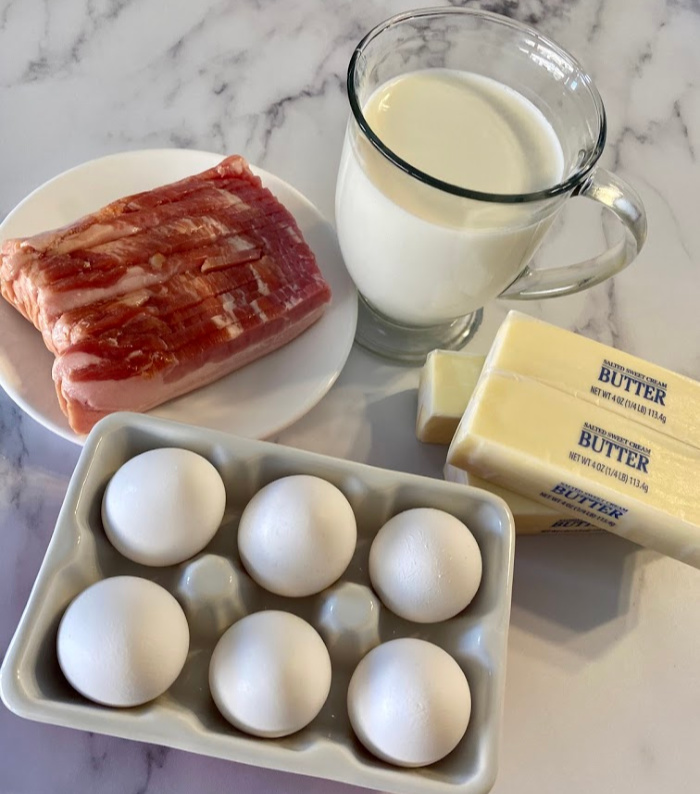
1. Never Can Eggs
I want to bring this issue to everyone’s attention because eggs aren’t safe to can at home. Bacteria will grow, and you’ll have a tough time seeing them in the jars when eggs are canned at home. Now, I am not talking about pickled eggs, which are safe for storage in the refrigerator for a short period.
Please don’t water bath or pressure can eggs. Call your local extension service if you still think you can “can” your eggs. If the food item you have a question about canning yourself isn’t listed on your local extension service, it is likely unsafe to process at home.
Yes, you can freeze eggs, but personally, I don’t want to fill my freezer with them. The texture won’t be the same with frozen eggs if you try eating them thawed right out of the freezer. They would work for baking, though. Having the possibility of having the electricity go out makes me nervous. I can only imagine trying to get rid of those thawed eggs in a power outage.
Reading about people having chickens and gathering eggs from their chicken coops puts a smile on my face. I have heard good stories from people who are learning to raise chickens, who have the available land, and local families working together as a team. I have also heard they have excess eggs and want to know what to do with all those eggs.
If you have extra eggs, consider donating them to the local homeless shelter or other facility looking for food donations. If that isn’t an option, you may consider giving them to neighbors or selling them if you want to go through any requirements for their safe distribution.
Let’s get real here. Please save money and buy professionally processed eggs in #10 cans for long-term storage. Another option is to purchase them in properly sealed packages from a reputable company. I only buy Ova Easy Eggs for my long-term storage. They are real eggs. You can scramble them, make a frittata or quiche, or bake with them.
I have a few #10 cans of powdered eggs, but I must say, they don’t taste like eggs when cooked in a frying pan, even with butter. They will be fine for baking muffins, cakes, pancakes, or bread. These are the only ones I like to buy because they taste just like fresh eggs out of a carton: OvaEasy Powdered Whole Eggs
2. Never Can Bacon
Bacon has too much fat to be safe for canning at home. I’m not a scientist or microbiologist, so I cannot correctly explain the significance of the bacteria that grows in bacon if you try canning it at home. Some people have canned bacon for years and swear by its safety.
Again, we don’t know what lurks in our home-canned bacon. I highly recommend you don’t pressure can or water bath bacon at home. Here’s the deal: I love bacon. Doesn’t everything taste better with bacon in it? My husband and I have been eating BLTs with tomatoes from our garden for years.
The only bacon inventory on my food storage shelves is four cans of professionally processed cooked Yoder’s Bacon. They will be used for a treat if we are without power for weeks. It’s way too expensive per pound to store much more.
I bought six cans of canned bacon from Yoder’s. When opened and unrolled, one can of Yoders equaled one package of precooked bacon from Costco. Yoders was three times the price, but I wanted to see how much was in one of those cans.
Yes, I freeze a few packages of bacon when it goes on sale. Thawing it in the refrigerator and baking it in the oven the next day is how I store and use my baco. We line a cookie sheet with foil and spread the bacon out in single layers as well as we can. Baking the bacon at 400 degrees for 45-60 minutes, depending on how crispy it gets is an easy way to cook it to perfection.
I love that baking the bacon in the oven keeps my stovetop clean. I learned this from my daughter and her husband. It’s so much easier. Please note: I buy thick center-cut bacon from a meat butcher or Costco, so if your bacon is thinly sliced, cut the cooking time in half. Yoder’s bacon: Yoders Canned Fully Cooked Bacon (currently unavailable). It’s popular and sells out fast, but hopefully, we can get it again when they have another shipment.
3. Never Can Butter
Next, let’s talk about butter. It isn’t safe to can at home either. Maybe you had a friend or someone else show you how to can it. Like bacon, butter has too much fat to safely can it at home. Again, we don’t know what bacteria may be growing in those jars.
We watch for butter to go on sale and fill my freezer with as many packages as my budget will allow. I also bought some powdered butter that tastes awful. I get dry heaves just thinking about the smell of it. One website states that their powdered butter “tastes like Land O’Lakes butter.” No, it doesn’t. I have tried them all. They are fine for baking because the other ingredients cover the flavor of their powdered product.
This is a statement I was given from the USU Extension Service on a sheet of paper listing food to NOT store:
“Home-canned butter, especially unsalted butter, has NO protection from botulism. Salted home-canned butter has no science-based process to be safe. Heating the jars does sterilize it, but it will NOT kill any botulism spores. Removing the oxygen from the jar allows for the potential growth of botulism spores.”
I highly recommend this brand of canned butter for your food storage: Red Feather PURE CANNED BUTTER
4. Never Can Milk or Cream:
Here’s what the experts say about canning milk or cream: It is unsafe to preserve by water bath or pressure canning. The milk and cream have too much fat, just like the other food items in this post. I found this on the USDA website: “Caution: Do not add noodles or other pasta, rice, flour, cream, milk or other thickening agents to home-canned soups. If dried beans or peas are used, they must be fully rehydrated first.”
In the classes I took to pass my Master Preserver Canning Certificate, we were reminded of these four products I have listed above. We were all instructed that they are unsafe to can because we can’t get our pressure canner to the temperature required to kill off the bacteria. This is why I buy these products from commercial companies that have the necessary equipment to can them safely.
I quote the USDA Guideline Canning Book:
I’m looking at my USDA canning guide, which I received when I took classes for my Master Canner and Preserver. It states this: “CAUTION: Do not add noodles or other pasta, rice, flour, cream, milk, or other thickening agents to home-canned soups. If DRIED BEANS OR PEAS are used, they must be fully hydrated first.”
Comments from Readers:
Lauralee H: Explains how butter was stored in pioneer days. “The pioneers only made small batches of butter from milking their cows. Then, they stored it at room temperature in a butter bell, a ceramic dish in which they spooned the butter into the top bell part and poured a small amount of boiled salted water cooled over the butter.
Then, a plate-type bottom was placed on it, and it was turned over quickly and set down on the counter. That way, the salted water was on the bottom of the butter, sealing out the air. Each time they needed the butter, they poured the water off and used the butter.
Most of them salt their butter when churning it back then. They tried not to make too much butter at a time, only what they could use up in maybe three days. If they made big batches, they would do baking to use it up. I think you can still purchase butter bells.”
Shelley: “The National Center for Home Food Preservation is the go-to resource for safe, approved methods and recipes. If I ever have a question, this is where I go. I am also a Master Food Preserver through Washington State University, and I rely on our Extension Services for information. Please don’t trust the online resources you see as safe. Research first!”
Another Linda told me what her mom did years ago: “Hello, great post. My mom was born in 1910. She told me stories of how things were done in Ky for generations. They had cold dairies (called various things), but it came down to watching where the river level was at the highest point in the year and going a few feet above this.
You dig out the riverbank and shore it up, just like they do in the mines, caves, etc. Milk, eggs, and butter were stored. Mom said it was frigid, even in the summer. Winter temperatures allowed longer storage, so more significant amounts were stored. For pitted fruits, a fruit cellar was dug into a mountain or a wood building covered to be a small hill, etc.
JoEllen: “Actually, you might have included anything “dairy” as something unsafe to water bath or pressure can. A crowd out there advocates water bath canning of extra milk. Hopefully, they will survive their ICU stay.”
Final Word
Please be careful when canning ANY food at home. I don’t want to discourage my readers from being active canning advocates, but these four should never be canned at home. Here’s to safe canning. I see that having family members get sick isn’t worth the risk. A word to the wise. May God bless this world, Linda
Utah State Extension Service: Utah State Extension Service.


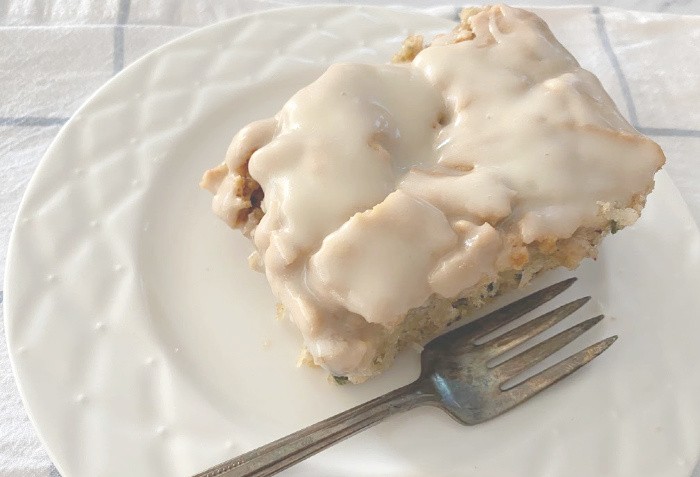

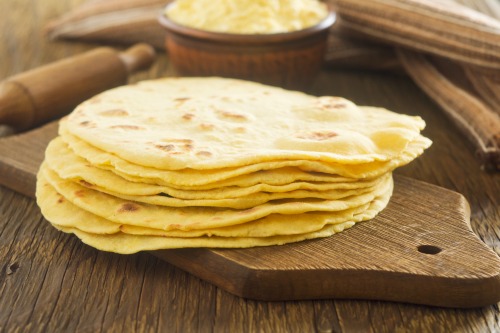
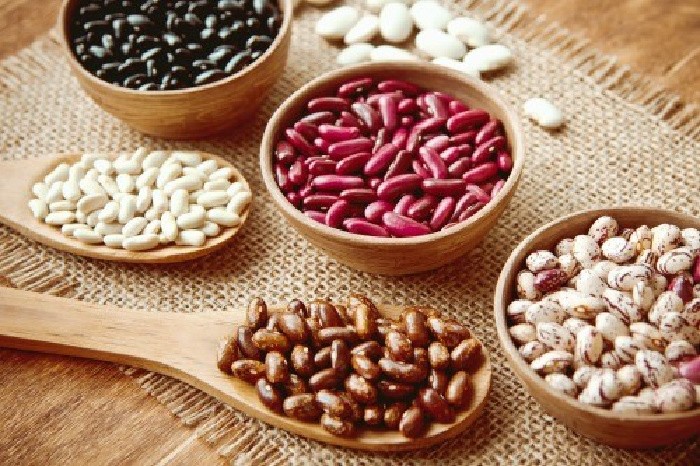

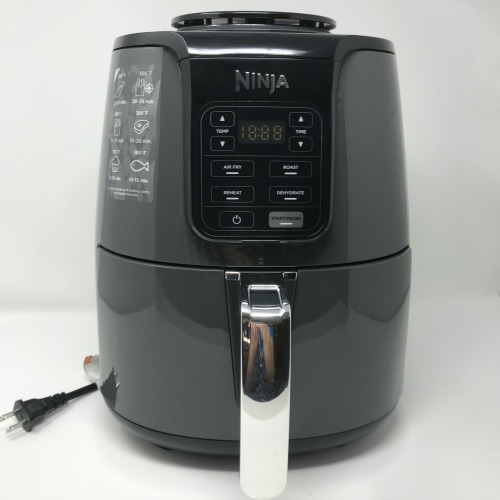
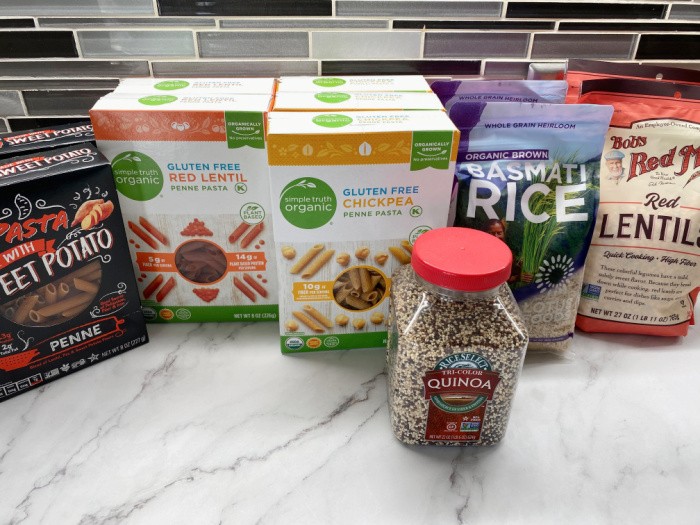

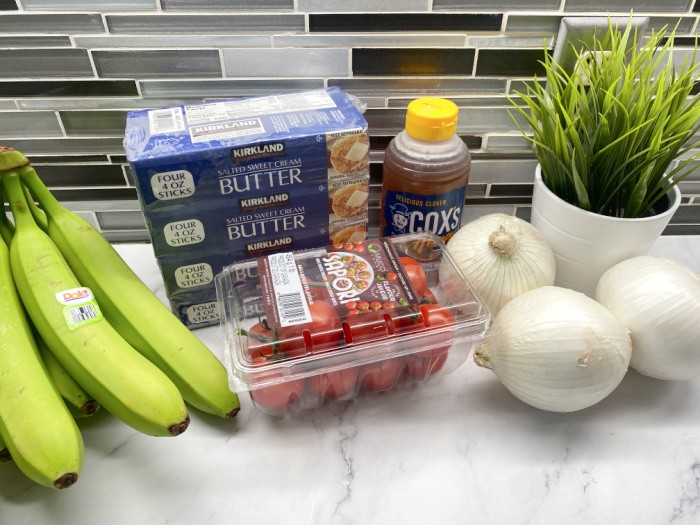
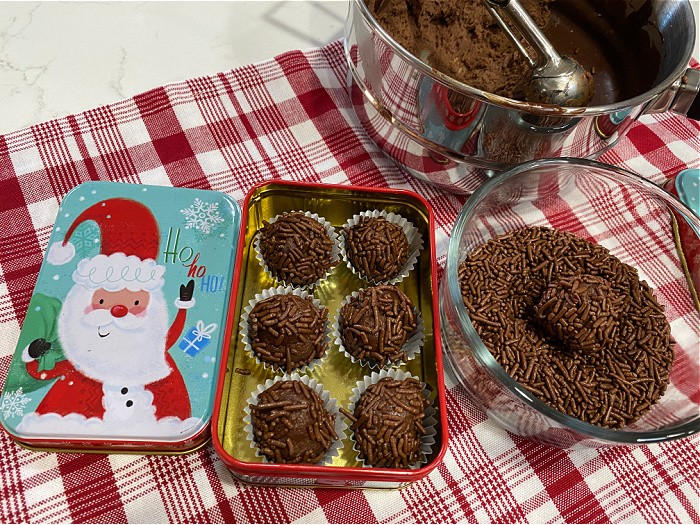
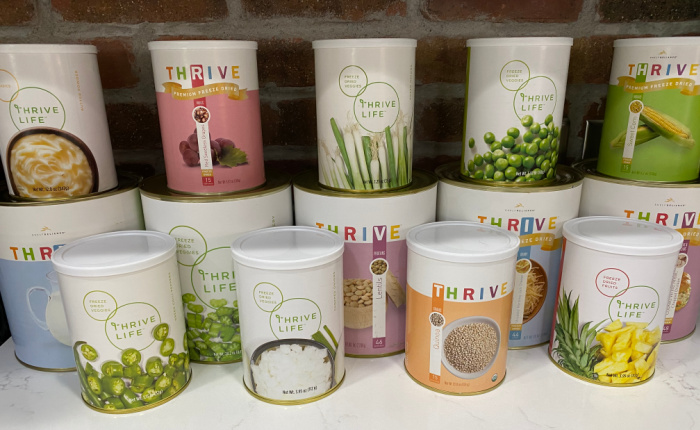
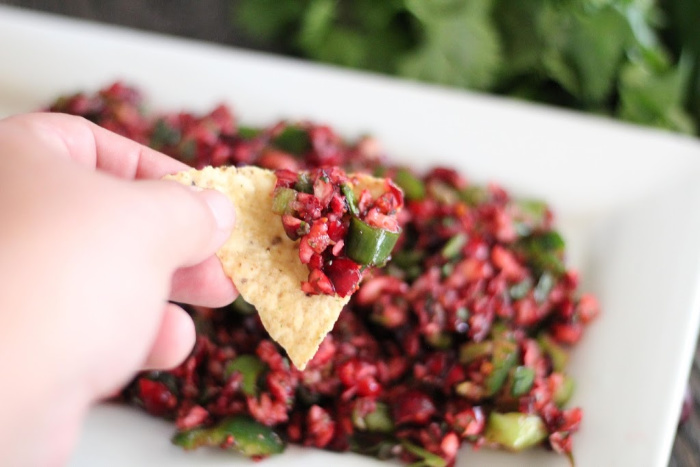

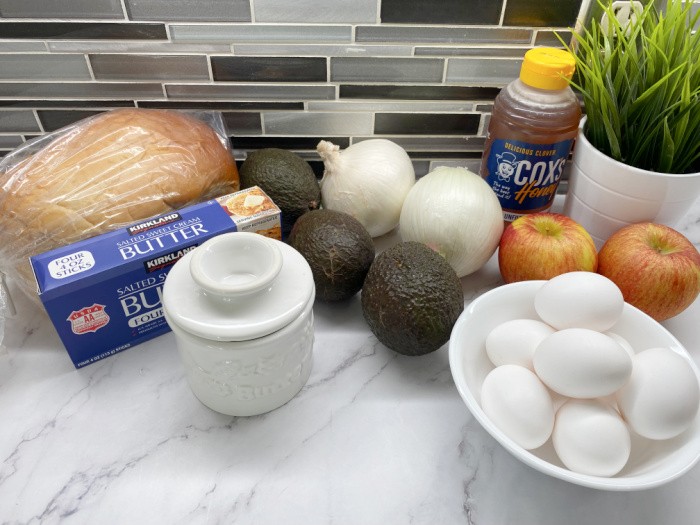
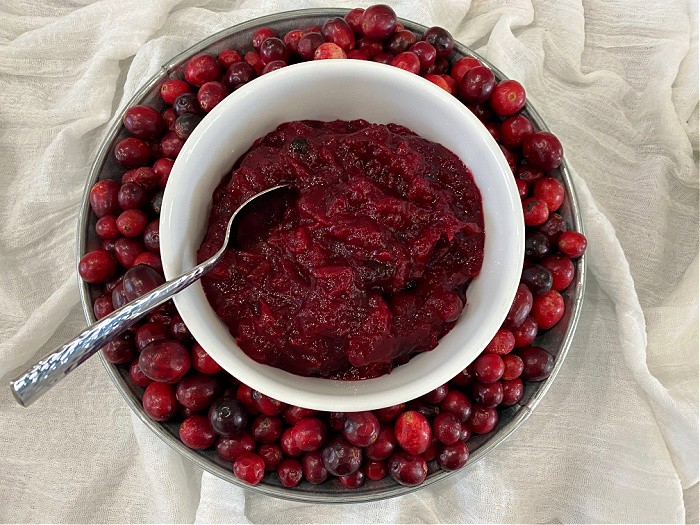
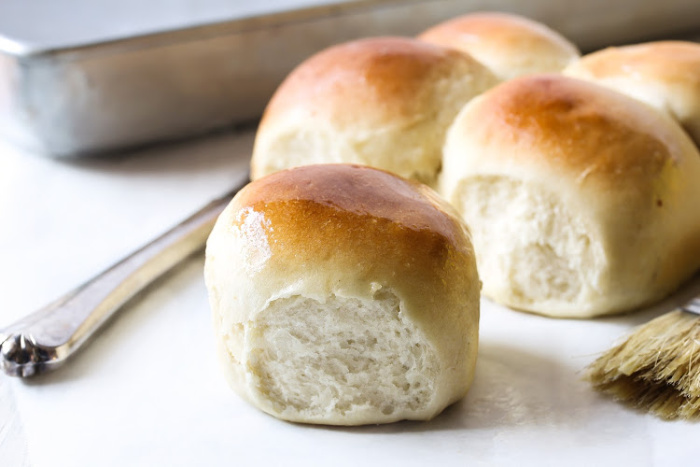
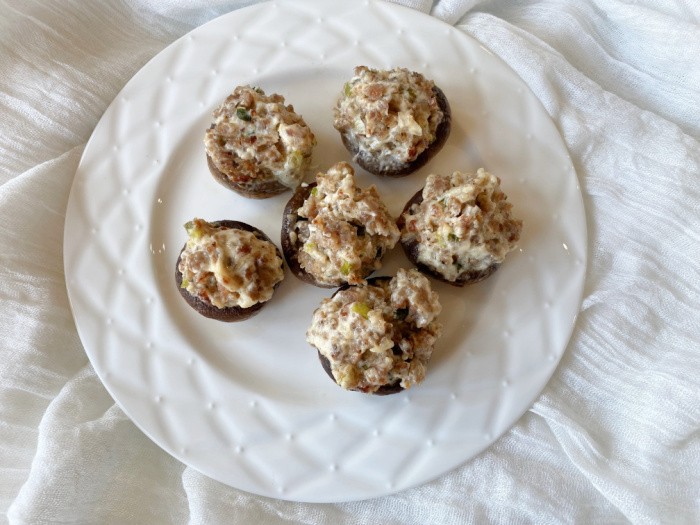



I understand you’re saying buy commercially processed butter, eggs, bacon and don’t can milk or cream for longest life. Now I know you dehydrate a lot of your food and I have seen/heard of turkey jerky being made in one of those Ronco food dehydrators on one of their late night commercials. Not too long ago, I recall finding out it’s not considered safe to make turkey jerky.
They say salting and smoking is easy enough to do, but I don’t know how to do that safely, if there are even any government guidelines and that excess salt isn’t healthy.
So is it safe to dehydrate meats and can we make powdered or dehydrated eggs assuming we have an over abundance of any fresh eggs down the road? I’ve mentioned to you several times I”d like to get into drying food (Making the most out of fruits and vegetables when fresh and in season) and I think I talked my father into it, so I have to strike while the iron is hot. LOL.
Hi Frank, I tend to be more cautious than some people. I have dehydrated hamburger in an Excalibur dehydrator. Here’s the link. https://www.foodstoragemoms.com/hamburger-jerky/ The hamburger must be at least 93% lean ground beef. It’s pretty hard to find the ground beef this lean in my small town. Costco sells 88% as I remember. I finally found it at a local grocery store. It has a lot of salt and must be refrigerated or frozen to keep it safe. I found it too expensive to make and keep long-term. I have made it a few more times and it’s good but too much salt has to be added to keep it safe. Fruits and Vegetables are very easy to dehydrate for short-term preservation. I will have to look into seeing how safe the salting and smoking would be. Great comment, Linda
Thank you for the info. I cringe every time I hear of someone home canning butter and other high fat foods. Especially oven canning. That is not canning. That is just heating. Just because a jar seals does not mean it is safe. Foolish people.
Hi Mary, I love your comment, thank you! I cringe hearing people are oven canning. It is not canning. You nailed it, foolish people. Linda
Most of the posts I see about doing oven canning on a regular basis come from accross the pond, generally in the UK. I’ll stick to water bath & pressure canning myself.
Hi Ohio Prepper, actually I saw one written about canning butter in the oven by a woman in my small town in Southern Utah. I think there are in the US as well. I’ll stick to water bath and pressure canning as well. Stay safe! Linda
Great article! I just wanted to point out that there is actually one recipe that involves eggs being canned that is approved by the NCFHP. https://nchfp.uga.edu/how/can_02/lemon_curd.html I just thought that this would be important to note since the NCFHP is the go to for canning preservation safety and didn’t want anyone thinking that a mistake was made.
My sister in law and I oven can peanuts every year. Last month I opened a quart jar of peanuts that was oven canned in 1913 and they were still good, looked just like when I put them in the jar. I toasted them to snack on and toss in salads etc. No problems at all. We buy them by the 50 lb. bags to can and neither family has ever had a problem with bad peanuts.
Did you mean 2013, in regards to your canned peanuts?
Hi Linda, I’m thinking she meant 2013. Dry canning in the oven is not safe. Linda
Yes, sorry 2013
Flour, rice, and pasta also cannot be canned.
Hi Joanna, I agree. Linda
Hello, Linda. Thank you for the info about canning. I understand that you are saying these products are unsafe for home canning due to their high fat content. However, I do not understand why fat is considered unsafe to can. I am not disputing your advice. Not at all. I just want to understand why fat is a problem. Do different microorganisms grow in fat? It just seems that if you can heat fat to deep-fry temperatures, which are much higher than boiling water, then shouldn’t that kill any germs in the fat, and at the same time sterilize any jars into which the heated fat is poured? I have no interest in canning anything other than my own garden produce, but I do want to understand as much as possible. I don’t want to leave the matter as, “You can’t can it because it’s high in fat.” Just seems too much like, “The sky is blue because it is.” Also, what about fully skimmed, fat-free milk? Thank you for any additional light you can shed on this topic.
Hi Patricia, I think the best thing you can do is call your local State Extension service but basically what I have read it states because all fat must be removed from meat as well when pressuring canning because the excess fat interferes with the seal formation on the jars. Here is a good explanation: https://ucanr.edu/sites/mfp_of_cs/files/312272.pdf Linda
I find that the best ways to preserve eggs are to either freeze dry them or simply freeze them raw. You crack an egg into each of the sections of an ice cube tray, and then gently scramble it. Place the tray in the freezer and freeze just like normal ice cubes. Once frozen you can quickly pop them out into a zip top freezer bag and place back in the freezer. When you need eggs in a recipe, simply take as many as you need and let them thaw, then use like normal. They also work well for just eating as of course; scrambled eggs. Since we have a whole house generator, freezing is an option we use for many things.
We have a small flock of hens and at times have more eggs than we can eat, so we will freeze some and gift the others to neighbors, who in turn will gift us vegetables or help with chores. Sometimes, especially when molting, we may only get a few eggs per week, so the stored eggs can be important.
For Bacon, we occasionally purchase the Yoder’s brand; but, bacon is inexpensive enough to purchase when you need it or to keep some frozen. We purchased an “As seen on TV” product a while back and it works well for oven frying bacon. The “Bacon Bonanza” has a pan with a rack that holds the bacon horizontally, and allows the grease to drip into the pan which allows the bacon to be a bit less greasy. Cleanup is also easier.
We have tried the “Red Feather PURE CANNED BUTTER”; but, generally do as you do, purchasing on sale and keeping it frozen. We have however canned homemade Ghee (Clarified butter) that is made by melting butter and heating it enough to drive off all of the water, and then skimming off then milk solids. The mixture is hot enough to kill Clostridium Botulinum spores and the resulting pure oil has a smoke point of 485° compared to butter @ 350°
Canned in this case means pouring the Ghee into jars, placing lids and refrigerating after cooling.
Another thing I rarely see mentioned is to have some measuring equipment for canning. You can safely water bath can food with an Acidic pH of 4.6 or less, and most recipes assume that fruits are in that range. For water bath canning vegetables you can safely use the pickling method with a vinegar or lemon juice based pickling solution which I used to do; but, modern electronics have gotten inexpensive enough to take away the guessing, so adding a pH meter to youf kitchen tools is not a bad idea.
I do have an unrelated comment for Linda. Whenever I am visiting your site, my browser and computer sometimes slow down horribly, at least in part I think because of some of the videos that auto start.
Just a tip regarding cooking bacon in the oven – I have a couple deeper pans (probably ‘jelly roll’ type) and I have a cooling rack that fits over the pan, but stays elevated because of the ‘feet’. My husband started using this method for bacon and hamburgers so any fat drips down into the pan (lined with foil for easy cleanup) and the bacon and/or hamburgers lose the excess fat while cooking!
Since we’ve been doing this, I keep that rack separate from others, as there’s sometimes a little residue that doesn’t like to come off, no matter how many cleanings, but I have others to use for baking. 🙂
HI Marie, oh how I love bacon! It’s so much easier to bake bacon in the oven especially on the racks. I need to do hamburger patties that way! Love it! Linda
If you have a powdered whole milk that you like- I have seen where people use that to make butter and cottage cheese! Worth a shot using your favorite powdered milk to recreate that at home.
Hi Theresa, that would be nice to know how to do it. Linda
I need to make ghee for a project. How to I safely jar it
Hi Nina, I have never made ghee and I cannot recommend canning it. I understand you can make it but I can’t give any advice on it. I understand you can put it in jars and store it. You may want to follow the directions from this website: https://www.thepioneerwoman.com/food-cooking/recipes/a91575/how-to-make-ghee/ Linda
If it isn’t in the USDA book for home canning, I simply don’t do it. Getting sick from home-canned food is not on my bucket list.
The USDA book has a fantastic chili recipe, I plan on canning when it gets cooler.
Hi Janet, oh I love hearing this! That’s my go-to book for canning. Oh, I need to try the chili recipe! Linda
One of the ones here asking questions prompting this post
Thx
Hi Matt, yeah, I like to repost this post with any updates every year or so. Linda
It is too bad that we can’t can these items but you are definitely right. My neighbor freeze dries the eggs from her chickens. I covered eggs with mineral oil and kept them several months per a prominent prepping site and they were fine (well we didn’t get sick) but I’m not sure if that method has been proven okay or not now? Another controversial item people were canning that the extension service said was unsafe was various fruit breads in cans.
Hi Kay, yeah baking bread in mason jars is scary and not safe. I see posts with people making fruit bread in Instant Pots. Good grief, just bake it in the oven. Maybe I’m old, but I love banana or zucchini bread baked in the oven. I may try a freeze dryer, it’s a bit pricey for me but I may buy one to help teach others how to use it. (And I will not charge for classes, LOL). The freeze-dried eggs sound awesome! I’ve never done water glassing or mineral oil on eggs. But I don’t raise chickens. Linda
Can you oven can dry navy beans for storage?
Hi Linda, it really is not safe to dry can any food in the oven. Mason jars are not meant to have dry heat. Just use a FoodSaver or a 5-gallon bucket. Linda
Linda,
I agree with your advice completely. I do most of my canning in my All American 921 Pressure Canner and there are some things–the ones you mentioned–I won’t even attempt. I have home canned Spaghetti sauce with meat and I used 80% ground chuck in that. Now I’m wondering if it’s safe to eat. Some of it is more than a year old. I’d heard the additional acidity provided by the tomatoes (and the added sugar0 reduced the chances of the meat going bad. What do you think?
You can download the USDA Canning Guide and print it out yourself for free on their website–most of the info there comes from Purdue University.
https://nchfp.uga.edu/publications/publications_usda.html
The National Center for Home Food Preservation also has an excellent guide you can print out yourself.
https://nchfp.uga.edu/
Hi Ray, yeah they have a download but man it’s a lot of pages. It’s like $9.00. I bet your spaghetti sauce is good. If you followed the USDA guidelines, it should be just fine. I have the All American 921 pressure canner as well. I used a Presto for years and graduated to the All American one. Love it, Linda
Linda,
I see recipes for home canned beef stew and chicken noodle soup, minestrone, pasta fagiole and even chili with beef. Are you saying those wouldn’t be safe? I’m asking because I was seriously considering making them.
Hi Ray, I’m looking at my USDA canning guide I received when I took classes for my Master Canner and Preserver. It states this, CAUTION: Do not add noodles, or other pasta, rice, flour, cream, milk, or other thickening agents to home-canned soups. If DRIED BEANS, OR PEAS, are used, they must be fully hydrated first. I hope this helps, Linda. This is why I highly recommend having the book, you can see it quickly, my friend, Linda
Linda,
I know it says that but I was thinking the noodles would be pre cooked, as would the beans and or peas, so everything would already be fully hydrated before canning. I have already decided I wouldn’t try any recipes that have meat in them. Easy enough to add meat to any soup or stew I make later when I’m getting ready to serve it.
Hi Ray, you need to do what you feel good about canning. I wish I was back in my class so I could remember the why’s and why not’s! Linda
There are canning groups on FB who encourage water bath canning of meats They are using canning books from the 30’s and 40’s as a guide (and Amish cookbooks). They say Europe still uses these methods so it is “safe”. I have seen times such as 3 hours to water bath beef soup and meats. Is this truly possible? They figure pioneers didn’t have pressure canners so it is ok.
HI KayKay, I can’t water bath can meat, nope, it’s not safe. Are the people afraid to use a pressure canner? It’s so much safer to pressure can meat. The pioneers dried their meat, not sure they would have water-bath canned them. Not sure. I tell people to get updated canning books from reputable companies like Ball or the USDA canning guidelines. Yes, there are rebel-canners out there, they love to do tell people how to can the wrong way. I wouldn’t trust any FB group that suggests water bath canning meat. Linda
In that case, should I discard the navy beans I oven canned or can they be salvaged? Also, any suggestions on how to store crackers long term. I put the unopened pkg in a mylar bag. Would that work?
Hi Linda, your beans should be fine, you were lucky the jars didn’t explode in the oven. I would make crackers from scratch over trying to store crackers long-term, it will not work. Maybe 1-2 years in mason jars using a FoodSaver. Unless you want to make Hardtack crackers, they last forever. https://www.foodstoragemoms.com/make-hardtack/ Linda
The Ball Canning Book is the “bible” we a s Master Food Preservers recommend. One them that I do though, is can nuts in the oven. I put them in Kerr jars with fresh lids and place them into a preheated oven for 45 min. Remove and cool. It works great! It setts the oils in the nuts and I have kept them fresh tasting for up to 5 years. I found the recipe in an older Ker Canning book when I was trying to find a way to keep walnuts fresh when I got them in 25 lb. bags in CA years ago. I have done walnuts. pecans, sliced almonds and filberts. It is nice to know that I have them ready when I need them and it keeps my freezer space open for me to store the fruit we grow and the chicken we raise and process for meat.
Hi Cheryl, you were lucky your jars didn’t explode. I copied this off the Ball website: We do not recommend baking in any size or shape of Ball or Kerr canning jars. The glass used for Ball and Kerr canning jars is not tempered for oven use and is not meant to be used as bakeware. The jars are safe to use for home canning recipes, cold or room temperature food storage, cold beverages and crafting. https://www.freshpreserving.com/support/fresh-preserving-faqs. Just FYI, Linda
Sorry, I forgot to mention that when canning nuts in the oven pleas do them at 250 degrees for 45 min. Remove from oven and cool. Mine always seal and can ping . I was very happy to find this out years ago!
The glass doesn’t have a problem because the temp in the oven is only 250, if it was higher I would never do it in the oven. Many of my jars have been used for years ,pressuring and water bathing, and still no problems. If you feel it is not safe, don’t do it. All I know is that it works and had for years will no problems.
Hi Cheryl, I understand your position, and I respect your thoughts. I freeze my nuts and that works for me. Both of us are preserving our food, and that’s what’s awesome! Linda
OK I learned years ago while my Husband was stationed at Ft Benning GA. That it was OK to can well cooked bacon with your green beans. is it possible enough fat is cooked away? I pressure can the Green Beans with a salt brine. I’m just wondering if we have been dodging a bullet (Army humor) all this time?
Hi Hazel, I think you have dodged it!!! LOL! Not funny, but you were cute asking that!! I would just pressure can the beans just plain!! Love that your preserving your food! Linda
On the same page with oven-baked bacon! I then freeze the bacon for instant bacon bits (or comfort food). And it’s so easy to pour off the nice clean bacon fat for later cooking.
Butter–yes, make ghee if you need to store it. If it’s worked in a climate like India all these hundreds (thousands?) of years, it’ll work anywhere. That said–if we ever did need to store butter without freezers, the old way was to ram it into containers (to force out the air) with salt sprinkled in liberally in layers. It was salted so heavily the butter would need to be washed, soaked, rinsed before it could be eaten.
Which brings up food storage if ever S really HTF. Salt is a real necessity, since we can’t can everything–it will preserve some meats, preserve some vegetables (green beans are an excellent example), will lacto-ferment others. And another point, which I picked up from Civil War re-enactors–some of whom really like to try to be as authentic as possible, down to the least bean and stitch… If you are going to be authentic (or if necessity forces you to), actually follow the authentic methods–don’t try to muddle in some modern methods. They don’t always mesh. The food storage methods our ancestors used either worked and were safely edible (in which case they continued to use that method)–or they caused sickness or worse, and thus went out of use. If you’re a chemist or physicist, maybe you can work out which of the old and new will go together–and which won’t!
Hi Rhonda, I totally agree. I am not a chemist or a physicist, so I have to follow my gut. It’s too bad our food has changed over the years therefore the preservation has changed. Do you remember getting cankers from tomatoes if you ate too many? They are not as acidic as the pioneers days so we have to add citric acid or lemon to the tomatoes when canning. We can only do what we can do and learn from it. Great comment, Linda
Hi,
I want to give away Buffalo sauce for wings for Christmas in canning jars. I’ll be going through the whole canning process sealing in sterilized jars. The Buffalo sauce will consist of the typical ingredients of of peppersauce, vinegar, butter, sugar, and Worcestershire sauce. If I can the sauce in sterilized/sealed sealed jars, does it need to be refrigerated still? Thanks!
Hi Curtis, I would worry about the butter in the recipe because of the fat content. I would contact your local state extension service and ask them about your recipe. Linda
I guess I don’t understand something. You tell us to not can bacon, eggs, milk or butter, but you provide a link to Amazon for CANNED bacon, and, CANNED butter. Granted when you click the links they say unavailable, but they are still there and it looks like you can can those items. So why say don’t can them if you can get them canned on Amazon or somewhere else. Powdered eggs are just wrong, period. I’m still a bit iffy on liquid eggs. Milk I think I can understand that one. Just voicing my opinion.
Hi Kelly, thank you for letting me know the links did not work. I fixed the OvaEasy egg link but Yoder’s Bacon is so popular because it tastes just like our own cooked bacon. (it’s still out of stock right now) This is what I learned in my Master Canning Preserving class, we can get our home pressure canners up to the pressure we need safely for most foods. But COMMERCIAL companies have commercial canners which can heat at a much higher temperature. Therefore we cannot safely can the 4 items I talked about. Thanks again, Linda
Kelly to be clear she means canning those things at home is a really bad idea as home canners will likely not have the means to do so safely, while commercial canners do.
Water glassing eggs is by far the best preservation method I’ve found. FRESH eggs ONLY. Follow these instructions for the best quality:
https://youtu.be/Lr0fR6yRoZM
I don’t refrigerate eggs anyway and as long as temps aren’t too high they’ll last a month or two.
I’ve got 5 layers and they keep my wife and I and my mom in eggs and occasionally I’ll give some to the neighbors. If you want to sell 20-30 will pay for feed and recoup expenses at a decent rate.
FYI The eggs you buy in the store may be 60-90 days old by the time you get them.
Hi Matt, having chickens is awesome in your own back yard! I love it! Linda
I bought several cases of “Red feather butter. I haven’t tasted it yet, but I follow the USDA guide. Right now, I am processing spiced apple rings. Yum. If anyone doesn’t have an apple peeler, I suggest you get one. It made the preparation so easy. Also, if you don’t have vitamin c on hand for canning, I suggest you get that too.
Wonderful post again, Linda!
HI Janet, thank you my friend for your kind words. The “Red Feather Butter” processed commercially is really good. Oh, I need to try some spiced apple rings, they sound delicious!!! Thanks for the tip on Vitamin C for canning. Most of the canning shelves are still so empty here in northern Utah. Thanks again, Linda
I’m not going to argue methods, but if you want to preserve meats they can be cured with salt and sugar or smoked. Jerky or powdered meat can be made with dehydration and a blender…. or mortar and pestle if you don’t mind hand grinding.
Of course, I’d find a book or very detailed video on how to do this or to process any meat. I’m not against open water bath canning or pressure canning, but there are other methods of preservation and there are some specific issues to deal with when processing different foods using any method.
I’m probably going to depend on raising chickens for eggs and meat because small animals, birds, work for me, but I’d love to have some cheese and fresh butter. I’m not sure if that is within my capabilities and I can handle it. Maybe just a couple of small goats if things get really bad.
It’s up to the individual to be setup to make the foods they’d like to have. If it’s not available for purchase then we have to think how, if possible can we have what we want.
And then we have to figure out what we can do based on location, space, budget, and willingness. Or can we create an arrangement with others or do we just go without when our stock runs out and wait until we can get more of whatever we need and desire to have.
We’re all so used to being able to go to grocery stores. I think soon we’ll all seek out local producers/farmers and buy from them.
Hi Frank, I agree there are other ways we can preserve meat, I only have dehydrated some hamburger jerky, and pressure-canned chicken, ground beef, and ground beef patties. I did not care for with of the ground beef I canned. I did it at a USDA Master Canner class. Nope, I won’t be canning any of that. LOL! Linda
Hi ,
First I want to say how much I love your posts. I have learned so much from your site.
I do not ‘can’ eggs, but am actively freeze drying them in my Harvest Right Freeze Dryer. The freeze dryer removed over 95% of the water. I have freeze dried scrambled eggs as well as uncooked ones. For the uncooked eggs, we briefly put them in the blender to mix then fill the tray. Once freeze dried it sort of resembles styrofoam. we break it up and blend into powder. Mix 1 Tbsp egg powder with 2 Tbsp water and you have a raw egg ready to cook or use in baking. The powder is kept in canning jar with oxygen absorbers and air vacuumed out. Great to have on hand. People claim a long shelf life but I’d use them within 2 years.
Hi Marilyn, I love hearing how you use your Harvest Right Freeze Dryer, I do not have one. I would agree on the two years as well. Better safe than sorry, Linda
I have not found the cost of bacon too bad here in New Mexico. If I am in Albuquerque I go to sprouts and bacon is usually $3.99 to $4.99 a pound. So I will buy enough to use till our next trip to Albuquerque. I can also find bacon at a good price at Alberstons Market. They will have a 5# pack of bacon for $2.99 with their discounts that they give people who sign up for their newsletter. We will also stock up as much as allowed with the discount and freeze it. We love BLT’s but we know that I make so many dishes with bacon so we don’t eat a lot of the like my potato salad, Sour Beans, Baked Beans and a few other dishes I learned from my mom and grandma’s. My paternal grandmother made the best Sour Beans that a Jewish chick could make. LOL.
Hi Jackie, oh the best Jewish chick, I love it, but you know that! I will have to check the bacon prices, I’m so excited to make your potato salad and Sour Beans! Love this, Linda
Hi, I’m doing my research before jumping into canning, hope this doesn’t ramble. I’m disabled due to damage from a few strokes. Cooking baking has always been a passion. There are a few things that I make that people outside of my family absolutely rave about, including my “Sunday” sauce with my meatballs sausage and pork pieces. I am pretty sure long-term storage is a bad idea. My question is about how long do you think jars would be ok assuming the seals stay intact using proper pressure canning and a warning to keep refrigerated.. Ok so the meatballs contain breadcrumbs eggs milk and Parmesan cheese. Do you think a few weeks not unreasonable? I will of course test before I offered any to someone. Tia for any help.
HI Joseph, I love to hear you love baking and cooking! I would freeze your Sunday sauce with the meatballs instead of canning them. Just leave space for expansion in the jars. I freeze several of my home soups and stews and thaw them in the fridge a day or two before serving. Linda
Thank you Linda, I am loving your page.
HI Joseph, thank you for your kind words, my friend! Linda
Good article Linda. Glad to see that others are aware of not canning butter, flour, rice and pasta. I simply pressure can my meats no dehydrating. I’ve learned how to freeze dry and have come to the conclusion I do not like freeze drying meats because of the oil content that comes from it so I went back to canning it.
Hi Judy, oh thank you for your kind words! I love hearing you have learned to freeze dry food. Thanks for the tip on freezing drying meat, I would prefer pressure canning meat as well. Thank you for your comment it will help all of us. Thank you! Linda
I grew up canning both water bath and pressure. I was taught that if there is any doubt – ANY DOUBT – don’t do it. Fruits and veggies and meat as well as mixed things like soups and stews were canned. Nothing else as far as I can remember.
Please do not take a chance on your family’s health!!
Hi Leanne, I totally agree, when in doubt don’t do it! Nowadays there is a group called Rebel Canners, they like to mock safety measures. I once had a nurse comment I hope they stay out of the ER! I loved that comment! Linda
Glad to see this post, as I have seen a resurgence lately, of unsafe recipes for canning, not only on facebook, but on some recipe sites. So many people think because their mothers and grandmother’s canned greenbeans by waterbath method, or steamers, that they can too. “100 yrs of canning and they never had a problem”! In fact, some may have gotten sick but didn’t make the connection, as a lot of people do recover. I think it is 50% that recover from botulism. The other 50% is pretty darn scary! They could go blind, get paralysis of limbs or their lungs or airway. What a horrible way to die! They could get diarrhea so badly they could die. Paralysis of an arm or leg for the rest of your life, because of eating canned vegetables that were improperly canned. There is NO way, of looking at what you have canned and telling that it is bad. Botulism is odorless, colorless and unable to see it by the naked eye.
I guess if someone likes playing Russian Roulette, they can do so, but just how much would someone like to take that chance with their child? 50% we get sick and have gas pains for a few days, or 50% my 4 year old loses her eyesight, my 7 year old’s arm becomes paralyzed, or the Love of my life, all of a sudden can’t breathe because his airway is paralyzed, and by the time we get to the hospital, it is too late. Because of stubbornness.
Of course I don’t understand people who don’t wash their hands before cooking, go to the bathroom without washing hands afterwards, blow their nose and don’t wash their hands, let their toddler sit on the counter in their ill fitting shorts, and don’t wipe off the counter before putting food on it, cut open a watermelon or other fruit without washing it off first, peel an onion and do not wash the peeled onion under running water to get the dust off it that was clinging to the onion peels and the root end, (that’s Dirt dust folks)! Pet peeve is cooking shows, who do all these unsafe practices, so people think it is okay. Taste the food and put the same spoon back in to stir again. Look at a Petri dish with the germs from these practices, and you would gag and lose your lunch.
From a formerly State Health Dept Certified Management Restauranteur.
Food Safety is hugely important!
Hi Linda W., oh my gosh I LOVE OVE LOVE your comment! I thank you from the bottom of mmy heart! These tips will save a life from BAD CANNING! I taught classes in a kitchen store and I was well aware of clean hands, even to this day, I wash my hands more than anyone I know! Your comment needs to be read by everyone! TRUTH! Linda